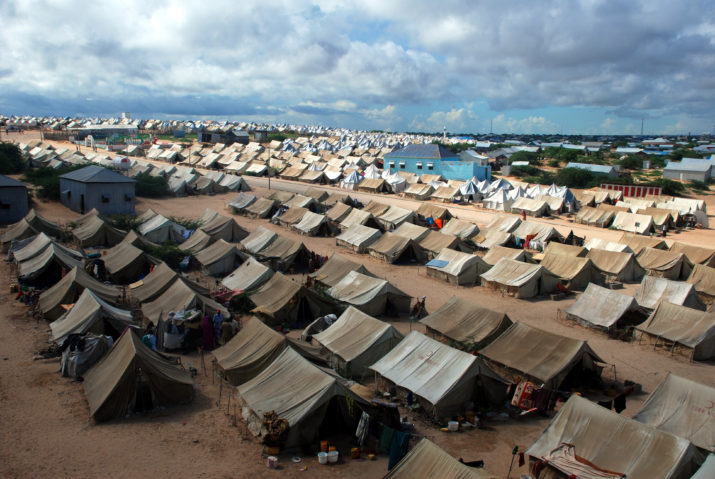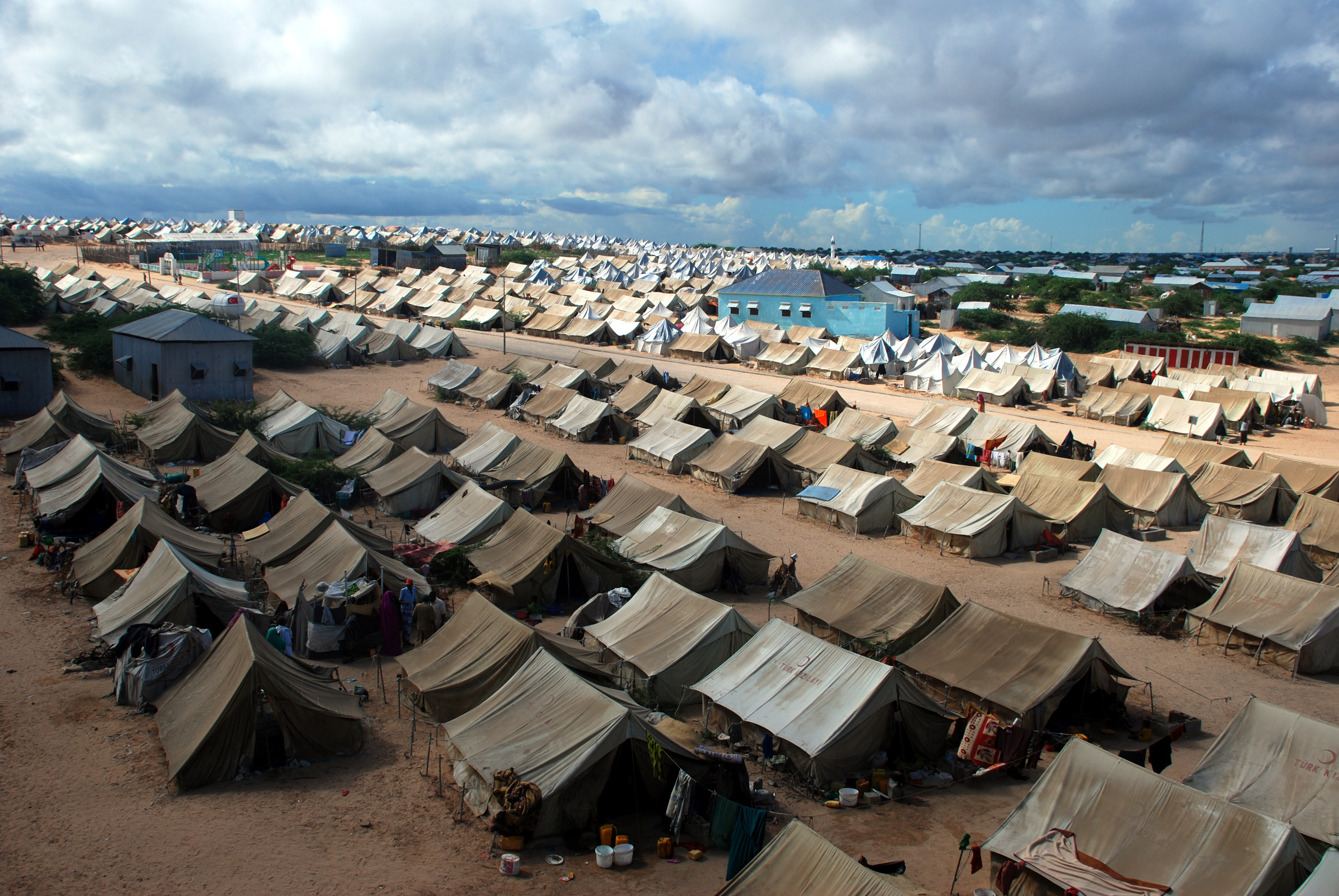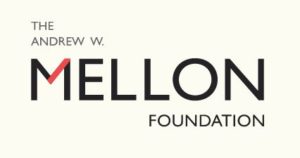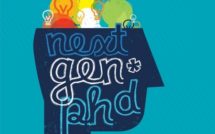

This is part of our special feature on Sustainability & Innovation.
According to the UNHCR, there are now more than 65 million forcibly displaced persons in the world. In sheer numbers, this is the largest displacement of people since the Second World War. It is a generational phenomenon that is global in its impact and local in its effect. Along with Climate Change, this forced movement of people is going to define our generation and the structure of the world we live in. The Vassar Refugee Solidarity initiative was inspired by and started in response to this realization.
In a previous edition of EuropeNow, Professor Maria Höhn described how the initiative began and the different projects we were involved in.[1] Learning from Vassar’s actions in the 1930s and 40s, drawing on its educational mission and institutional strengths and galvanized by Professor Maria Höhn’s actions, the Vassar Refugee Solidarity initiative was started in the Fall of 2015 with an original mission to create awareness about the situation, establish scholarships at Vassar for refugee students and have a positive impact, however small. This quickly changed as we realized that simply raising awareness was not enough. It was one thing to talk about “the crisis” in the privileged space of our campus, quite another to act on it. We were conscious, however, that action itself can often be more harmful than deliberate inaction, especially when we consider our positionality as individuals trying to lend a helping hand as members of an American institution. We came to understand that the existing models of humanitarian aid, developed in the aftermath of the Second World War, are based on the hierarchal vision and value structure of that time. Not only that—the very concept and “industry” of “humanitarian aid” is, to put it mildly, problematic. Our goals transformed to innovate new horizontal and more egalitarian models of cross-border and cross-cultural educational solidarity. After a process of trial and error, Vassar Refugee Solidarity’s efforts morphed into three primary projects: the creation of the Consortium on Forced Migration, Displacement and Education; our work in the local community to resettle refugees through building the Mid-Hudson Refugee Solidarity Alliance; and our digital initiative – Conversations Unbound.
The Consortium on Forced Migration, Displacement of Education, currently comprised of Bard, Bennington, Sarah Lawrence, and Vassar colleges is committed to social justice, the dignity of all people, and the education of global, engaged leaders. In the Fall of 2016, our consortium was awarded a one-year planning grant by the Mellon Foundation to develop an innovate curriculum in light of this worldwide “crisis,” to involve students in civic engagement both in other nation-states and in our own communities in the U.S., and to explore how we can use the digital humanities as agents of change. Since receiving the grant, faculty members, administrators, and students from our colleges have met at two workshops to discuss the theory of forced migration and humanitarian aid, the role of institutions of higher education in confronting such a challenge, and how we can best implement our commitments to our liberal arts values given the scope of the crisis.
Our discussions resulted in three “philosophical converges” and an agreement to pursue these in our work going forward. These philosophical convergences are to combine theory with action in our classes and curriculum; to develop a more holistic course offering and understanding of the worldwide scope of mass displacement; and to rethink our role as educators and students. We decided to situate the present condition in time and space – to look at the current crisis not as something that suddenly “happened” or is “over there,” but as something that is a result of a set of historical processes and is geographically wide. The need to treat those who are forcibly displaced as knowledge producers and to move away from the general top-down nature of academia was taken seriously. This latter commitment is reflected in a small, but significant practice throughout our workshops where students and faculty engaged in these deliberations as equal partners. We decided to always keep in mind the question of access to spaces. This was inspired by the realization that in talking about forcibly displaced people, a lot of them will never have access to the spaces in which we have these conversations. These insights will be incorporated into the development and implementation of, what we have termed as a “radical pedagogy” in the long term. This could serve as a model for other colleges and universities to respond to and interact with forced migration and displacement in a new, more conscious and self-critical way.
Our efforts to resettle refugees in the local community and in forming the Mid-Hudson Refugee Solidarity Alliance are an example of how theory and action can be meaningfully linked. This unique alliance now consists of local faith-based organizations, institutions of higher learning (Vassar, Bard, Marist, and Mount St. Mary colleges, as well as SUNY New Paltz and Dutchess Community College), social services agencies and local interfaith councils. We partnered with Church World Services (CWS), one of nine resettlement agencies in the United States, and were successful in convincing the State Department to let CWS open a resettlement office in Poughkeepsie. This approval came in October of 2016 and the office was slated to receive eighty refugees in the current fiscal year. However, the political context of our work and the federal policy towards welcoming refugees quickly changed after the election of 2016. Despite this, a family from the Democratic Republic of the Congo was successfully resettled in January 2017 a day after the first executive order instituting a travel ban was signed.[2] The family was enthusiastically welcomed and is now becoming a valued neighbor in our community. The CWS Poughkeepsie office, however, does not expect to resettle any more refugees in the current fiscal because of the reduction in the quota of the total number of refugees the United States is accepting. While this news has been disheartening to our alliance and could change given the ongoing legal challenges related to the Muslim ban, it has not dampened our resolve to continue our work towards making our community a welcoming and safe place for those who are forcibly displaced.
Vassar Refugee Solidarity and the Mid-Hudson Refugee Solidarity Alliance were always conscious of the existing dire needs in our community. We were also agreed that resettling refugees and helping those in our community were not mutually exclusive. From the beginning of our initiative, it was therefore our intention that with the resources and awareness that would be mobilized through our resettlement efforts, we could also make a positive impact in the lives of local people who were forcibly displaced. The news that we would not be receiving any new neighbors this fiscal year only made our focus on needs in the local community more urgent and important.
We discovered in this process that the global and local are not separate matters. In laying the groundwork for ensuring that the arriving families would find a welcoming home, we saw first-hand the different and deep needs that exist in our own community. As an example, in our struggle to find decent and affordable housing for the arriving families, we realized more fully the lack of affordable housing in Dutchess and the surrounding counties and the depth of homelessness in our own community of Poughkeepsie. Further, we understood that, while the contexts are significantly different, many of the needs that exist for newly arriving refugees bear a striking resemblance to the needs of those already forcibly displaced here in the U.S. The furniture that we had collected for our expected refugees was gratefully accepted by Hudson River Housing, an organization that works towards creating affordable housing for those in need. Some of the funds we raised were given to a United Nations effort to build a school for refugee girls in Kenya. Together with the local Interfaith Council our alliance also organized a march attended by more than one thousand community members to express solidarity with our Muslim neighbors.[3] Furthermore, an exhibition that tells the stories of migration, exile and refuge in the Hudson Valley was, curated by members of the initiative, is now on display in downtown Poughkeepsie. At a recently held community meeting, the Mid-Hudson Refugee Solidarity Alliance reconfirmed its commitment to resettling refugees in the Mid-Hudson Valley, but also decided to commit to work helping those in need in our community. As a first step, we are creating a database of projects already underway in the locality that pertain to forced displacement and highlight the migratory history of members of the community through educational projects in high schools. This integration will enable the alliance to stay true to its initial purpose as well as have a coordinated, meaningful and positive impact in the local community. For students at Vassar, this aspect of the initiative not only allows us to link our theoretical understanding of forced displacement with “on the ground” work, but also engages us with the local community in a way that challenges our understanding of the “refugee crisis.”
Vassar students’ understanding of and interaction with the “refugee crisis” is also being informed and transformed by our digital initiative, Conversations Unbound. Founded and directed by Elise Shea, who received a 2017 OZY Genius Award for her project, Conversations Unbound seeks to create enduring transnational relationships while rethinking the directional flow of international aid.[4] The project succeeded in creating a program in which every Vassar student enrolled in an Arabic language class was assigned regular conversations with a refugee tutor over the semester as part of their class. In return, the refugee tutor got paid for each session. For this, Conversations Unbound partnered with italki.com, a digital language learning platform that matches foreign learners with teachers and tutors in dozens of languages across the globe. Elise and her team were able to recruit twelve refugee tutors to join the platform and successfully ran a pilot this past spring. The refugees were paid with money raised by Vassar alums, and for many tutors, this was the first time they “made their own” money since being displaced. Because of our collaboration with another Vassar alum, who works for italki, the company adjusted its business model for our project so refugee tutors do not have to pay the customary service fee. The program in Arabic will continue at Vassar, and we are working towards expanding it to Spanish (utilizing the strength of the Spanish speaking community in our neighborhood) and to other colleges and universities. This program taught us the value of collaboration between students, teachers, administrators, and our school’s extensive worldwide alumnae/i network. It not only allows students to practice their Arabic skills or the refugee tutors to earn some money, but also forces us to look at people as not just “refugees” but as individuals with their own biographies, with stories of their own experiences and as people who can make their own choices. It allows the students to rethink what the often-monolithic application of the label “refugee” obscures, while making lasting and meaningful connections with people who may physically be halfway across the world.
The digital initiative is also launching a pilot for the “transnational classroom” initiative in the fall of 2017, where small, seminar-like classes at Vassar will be taught to both Vassar students and refugee students. We are in conversation with our partners in Greece, Turkey, Germany and Iraq to set up computer labs so that refugee students who are interested can join the class along with Vassar students. For the pilot, we are planning three classes in which six Vassar students and six refugee students (who will be recommended to us through our partners abroad) will join in six-week “pop-up classes.” The idea is to keep the classroom size small so that students can have in-depth conversations, receive dedicated mentoring, and a chance to develop lasting connections with their peers across the globe. The transnational classroom also allows students who may be trapped in camps or urban refugee shelters to continue or start learning about something they may be passionate about. In these ways, Conversations Unbound turns traditional models of humanitarian aid on its head by treating people as equal, as people capable of expressing their own preferences and creating lasting relationships across artificially imposed boundaries.
The different projects of the Vassar Refugee Solidarity initiative in their synergy, scope and impact try to create a meaningful and sustainable institutional mechanism to challenge us constantly and have a lasting positive impact on communities. They not only do the slow and long-term work of rethinking curricula, academia and the very process of knowledge production, but also allow people and communities to do the “on the ground” and immediate impact work in an innovative and worthwhile way. For us, the initiative has called several things into question. We now understand that even our name (“refugee solidarity”) is problematic and limiting, that the difference between the global and local is not an impassible chasm, that it is possible to chip away at existing structures and that we must always continue to introspect and self-criticize. Personally, the initiative has encouraged me to constantly ask myself, “what if.”

Anish Kanoria ’18 is an international student from India and a Political Science & Economics double major at Vassar College. He is the co-founder and student leader of Vassar Refuge Solidarity. He is also the Vice President of the Vassar Student Association.
Photo: A general view of the tent camp where thousands of Somali immigrants on April 30, 2013, in Mogadishu,Somalia | Shutterstock
References:
[1] Höhn, Maria. “The Mid-Hudson Refugee Solidarity Alliance.” EuropeNow. 1 February 2017. [https://www.europenowjournal.org/2017/01/31/the-refugee-solidarity-alliance/]
[2] Robbins, Liz. “Refugees Welcome. Volunteers Embrace Congolese Family in the Hudson Valley.” New York Times. 31 January 2017. [https://www.nytimes.com/2017/01/31/nyregion/refugees-congolese-family-hudson-valley.html?_r=3]
[3] Schuztman, Nina. “Hundreds Rally in Support of Refugees, Immigrants.” Poughkeepsie Journal. 1 February 2017. [http://www.poughkeepsiejournal.com/story/news/local/2017/02/01/locals-rally-support-refugees-immigrants/97290382/]
[4] Hertz, Larry. “Conversations Unbound: Connecting Arabic-Speaking Refugees with Language Learners.” Vassar Stories. 17 May 2017. [https://stories.vassar.edu/2017/170517-conversations-unbound.html]
Published on June 6, 2017.




